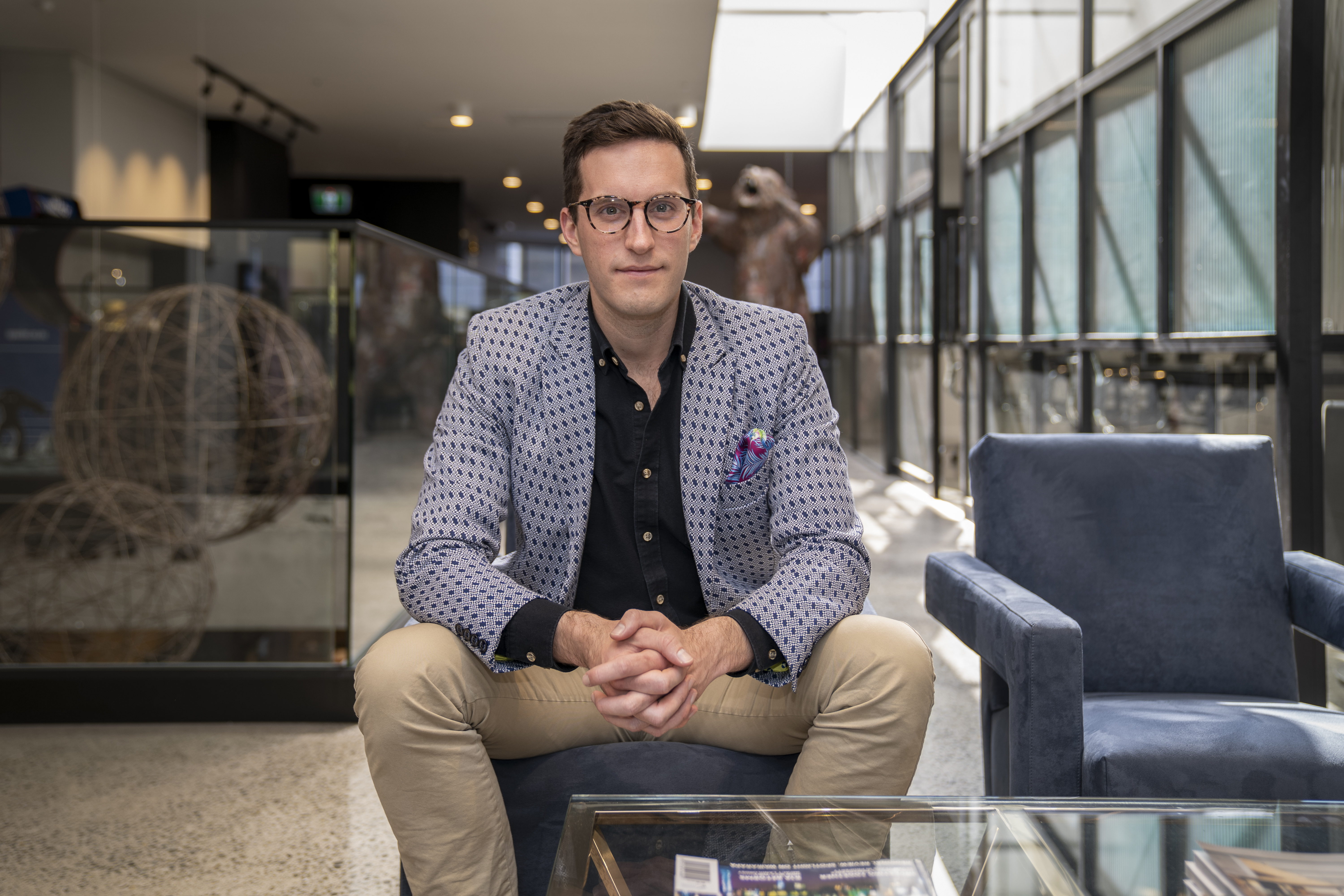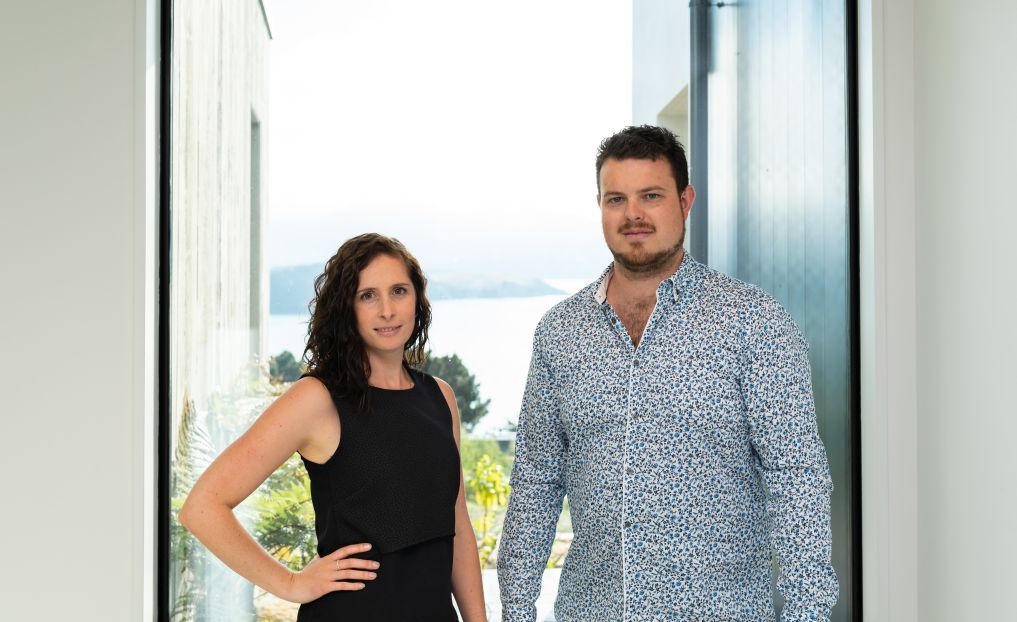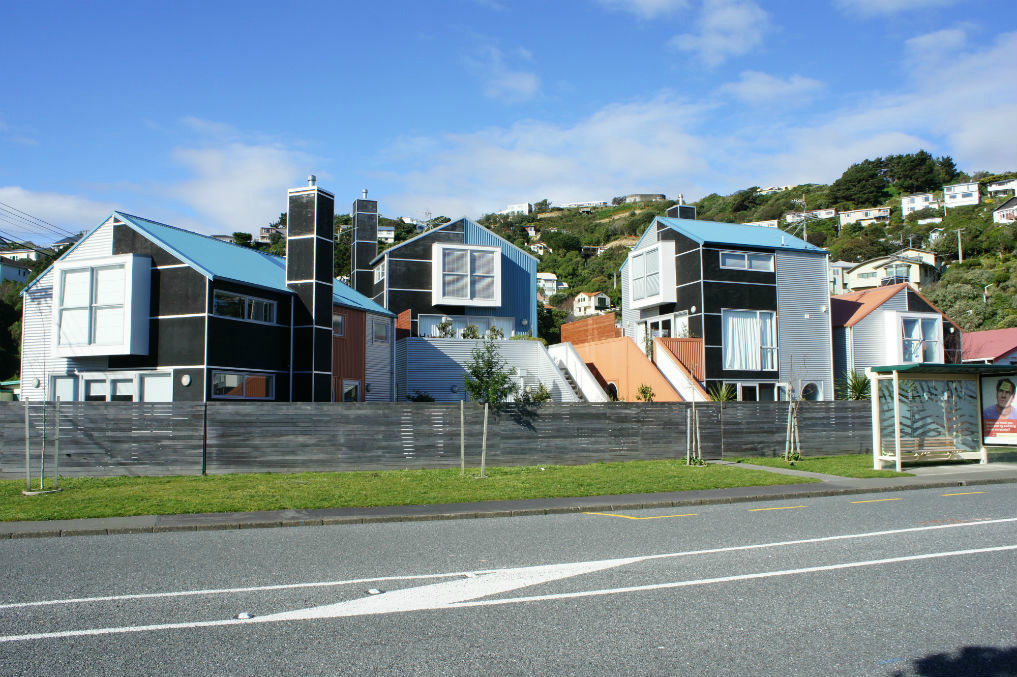New Zealanders are typically poor savers; a survey of adults’ savings habits in 29 OECD countries ranks Kiwis fourth last, at No.26. Ed McKnight, an economist for Opes Partners, believes our lack of financial literacy is down to the fact we do not like to talk about money. “Parents would rather discuss sex, drugs and alcohol with their children than money, financial investments and equity,” he says. The good news is there are many financially savvy experts available to help address the gap in knowledge around managing money. And when it comes to property investment as an option to make money and build wealth, Opes Partners have experts available to advise on all aspects of real estate.
Ed McKnight co-hosts New Zealand’s No.1 business podcast, Property Academy,
a 10-minute daily update on property investment. His co-host, Andrew Nicol, is a successful financial advisor and property investor who founded Opes Partners seven years ago. Since then the company has been helping thousands of aspiring Kiwi investors go from considering property to becoming successful investors.
Determine an investment plan
McKnight is as passionate about investment property as he is about the daily analysis he undertakes to determine the optimum investment opportunities on offer for clients who have a range of motivations. He cites recent statistics: 41 per cent want passive income; 24 per cent want to sort their retirement income; 25 per cent want to grow their wealth; and 8 per cent aim to have no money worries. “The way to get wealthy is to buy property and to hold on to it. And you don’t need cash in the bank to invest. Anyone who owns a home can potentially leverage up to 80 per cent of the value of that home to get the deposit for an investment property.”
Selecting the right property for investment depends largely on the aims of the investor and their situation. McKnight says it is important that the proposition fits with those investor plans. He uses real examples to illustrate his point.
“A Hamilton development that offers a room-by-room rental income will deliver a high yield but a lower long-term capital gain. That will suit someone who has many properties or is nearer retirement age. Alternatively, someone renting in Auckland may choose to invest in a property in Christchurch, where the average house cost is considerably lower than in Auckland. The capital gains will be higher in the longer term, especially given that the Christchurch property market is considerably undervalued.”
Development versus Investment
With regard to property development, McKnight says for those who have the stomach, gumption, knowledge, willingness and ability, there is certainly money to be made in undertaking development, but many people wanting to get into the property investment market do not possess those skills.
“The people we serve best are risk adverse. They prefer a passive strategy. We are focused on finding the optimum investment stock priced to give our investors the best deal. Our company offers a facilitated process, helping people invest in property, mitigating risk. We find properties and introduce investors to specialists who can help plan portfolios and achieve their investment goals.”
The Opes proven pathway to investment mitigates risk by motivating clients to invest secure in the knowledge that the process will enable them to get where they want to go. Opes has a team of 40 professionals covering property investment, sales, marketing and management. They work alongside many of New Zealand’s reputable development and building companies and diligently assess every investment against a 22-point checklist to determine its suitability for the range of investors they advise. McKnight is unequivocal about the best property to buy: not architectural. “Investment properties should be ordinary, normal, designed to appeal to as many people as possible,” McKnight says.
An architecturally designed, high spec home will cost more to build than a mainstream home and yet that additional expense is unlikely to be reflected in a higher rental income. Additionally, having high equity in a single property makes it harder to diversify. “Having exposure to different property markets provides an advantage for an investor.”
Property investment a slow cooker, not a fast panfry
McKnight’s single most important piece of advice is, stay in the market. “The way to get wealthy is to hold on to a property as long as possible. Ten years is a minimum, 15 plus is optimum. Property always increases in value over time.” On average property prices double in value every 10 to 12 years in New Zealand.
Buying new is another top tip. “We always recommend new. New properties are low maintenance and they create less worry.” Seeking advice and being informed on the property market is important, McKnight says, but ultimately the only way to get the benefit of property investment wealth and capital gain is to do it. “Education is not enough. Learning, reading and thinking about investing is not enough. Andrew has a saying that some people are too smart for their own good. They deliberate and do nothing.” He breaks it down to three simple steps:
• Get a mortgage.
• Buy a house.
• Get a property manager.
Like the Nike slogan says: ‘Just Do It’.



.jpg)


